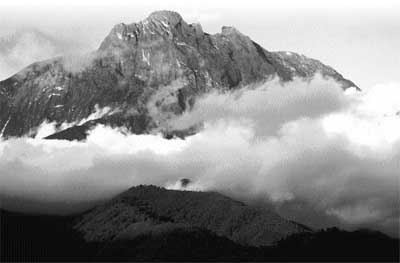Back,
current and coming issues:
This
is none back issue:
- Issue
1. Keeping in Touch:
Journals, Networks,
Newsletters,
Organizations and Professional
Societies.
This
is number two:
- Issue
2: Protecting Rights and
Resources: The Ethics of
Ethnobiology.
The
following issues are nearing completion:
- Issue
3: Communicating Results:
Community and Environmental
Education.
- Issue
4: Measuring Diversity:
Methods of Assessing Biological
Resources and Local
Knowledge.
And
then, we are just beginning:
- Cultivating
the Forest: Agroforestry
Systems.
- Managing
Resources: Community Forestry
Initiatives.
- Reading
the Landscape: Cultural
Perspectives and Geographical
Information Systems.
- Healing
the World: Ecology, Cultural
Transition and the Health of
Local Peoples.
What
do you think about the following
topics for later issues? Can you
suggest any other emerging topics?
- Greening
the Earth: Botanical Resource
Management in Arid and Semi-Arid
Zones.
- Supporting
Projects: Grant Writing and
Foundations.
- Feeding
the World: Food and Nutrition
from Non-Cultivated Plants.
- Growing
Diversity: Crop Genetic
Resources.
- Planting
Seeds: Ethnobotanical Gardens and
Germplasm Banks.
- Inheriting
Knowledge: Culture, Conservation
and Development.
- Gettting
Organized: Non-Governmental and
Indigenous Organizations.
- Harvesting
the Forest: Non-Timber Forest
Products and Extractivism.
- Classifying
the World: Systematics and
Ethnobiological
Classification.
.The
Editorial Team
- Gary
J. Martin, General Editor
- Ivette
Fabbri, Design and Production
- Alison
L. Hoare, Associate Editor
- Vinciane
de Bohan, Assistant Editor
- Terence
Hay-Edie, Assistant Editor
- Malcolm
Hadley, UNESCO advisor
- Alan
Hamilton, WWF advisor
- Hew
Prendergast, RBG, Kew
advisor
All
photographs by GJ Martin except when
otherwise noted.
If you wish to reference this issue of
the Handbook, we suggest the following
citation: Martin, G.J. and A.L. Hoare,
editors. 1996. Issue 1. Keeping in Touch:
Journals, Networks, Newsletters,
Organizations and Professional Societies.
In: G.J. Martin, general editor, People
and Plants Handbook: Sources For Applying
Ethnobotany to Conservation and Community
Development. UNESCO, Paris.
When writing to the individuals cited in
this issue, please tell them you
‘saw it in the People and Plants
Handbook’. Letting them know where
you found information about their
organization, publication or project will
help us strengthen our efforts and our
network.
Keep in mind that institutions are more
permanent than individuals. It is best to
send any correspondence to the
institutional address, mark
‘official’ somewhere on the
envelope, and put the name of the contact
person on the side, preceded by
‘Attention:’. This increases
the chances that someone else will
respond to your request, if the person we
mention has moved on.
 |
| Mount
Kinabalu,
centerpiece of Kinabalu Park and
part of the homeland of the
highland Dusun people of Sabah,
Malaysia. |
Back
Who
Supports the Handbook?
The People and Plants
Handbook is a publication of the
WWF-UNESCO-Kew People and Plants
Initiative (see PPH 1:4).
The
Handbook is produced with financial
support from the UK Overseas Development
Administration (ODA). Issue 2 of the
Handbook has been co-sponsored by
the International Plant Genetic Resources
Institute (IPGRI, see PPH 1:5). .
The
opinions expressed in the People and
Plants Handbook are those of the various
authors and contributors cited, and
should not necessarily be attributed to
the editors or sponsoring institutions.
Back
|